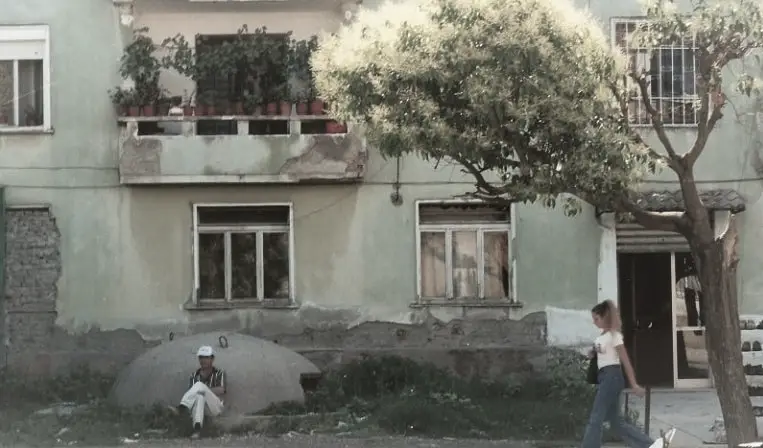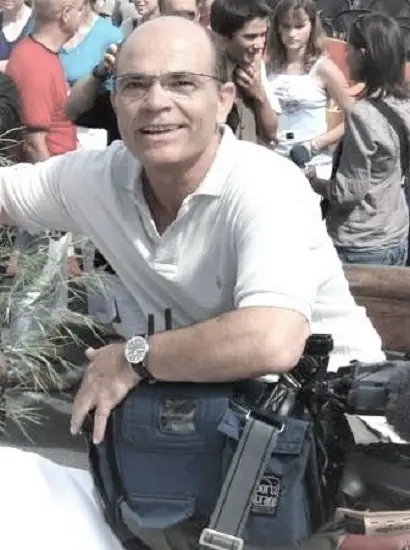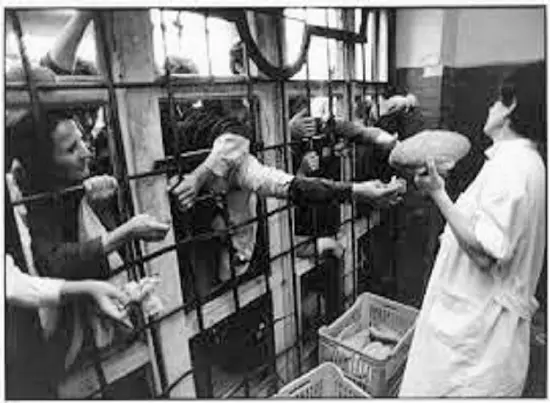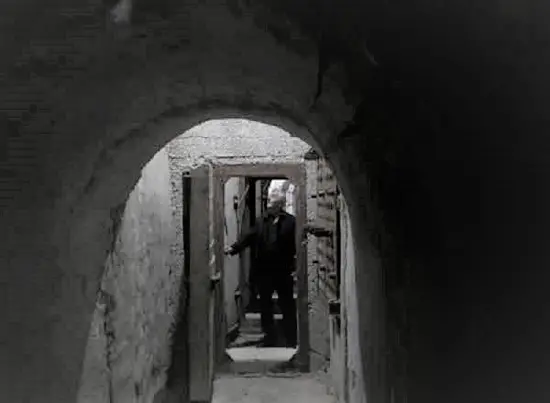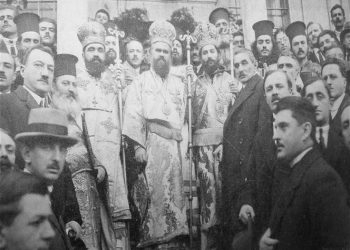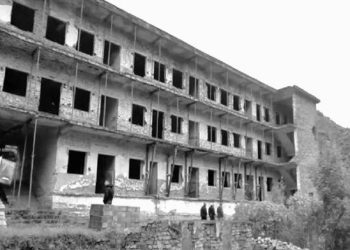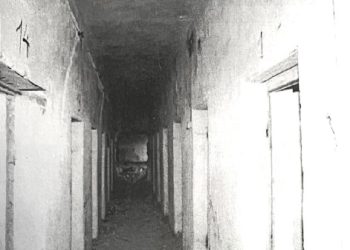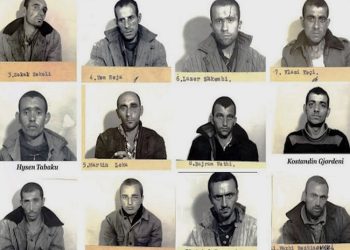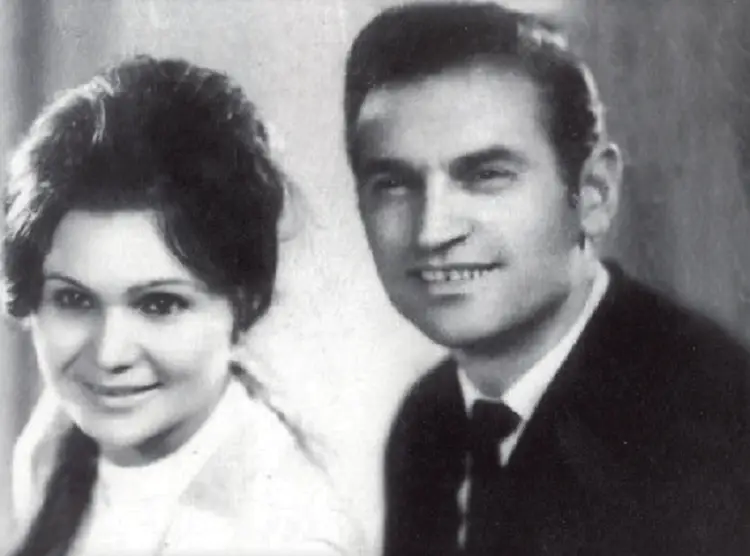By Vasil Qesari
The seventh part
Memorie.al/ The overthrow of the great totalitarian edifice in Albania would leave behind, not only the change of the system, accompanied by lots of hopes, mirages and cries of happiness but, unfortunately, also many wounds, dramas, victims, dust, milk and whatnot lies of all kinds. Ten years and more after that event, which deeply shook society, completely overturning many previous codes, rules and concepts, people still continue to ask themselves such questions as: What really happened in society Albanian, during the last 50 years of the dictatorship? How was it possible that the system managed to warp everything? Why did people accept it? What was the totalitarian logic of the transformation of society and the individual? How were the structures of totalitarian mechanisms conceived and functioning: propaganda, secret police and the exercise of the ideology of terror? How did it happen that among all the communist countries of Eastern Europe, Albania was considered an exception or a special case? Why did Enver Hoxha remain blindly, fanatically loyal to Stalin until the end, turning the country into a prison where violence, fear and purges continued until the end of the 80s? Why was the country so insanely isolated, locking people up between bunkers and barbed wire? Why, then, did all the above phenomena happen…?! The book “Post-scriptum for Dictatorship” does not claim to provide definitive answers to the above questions, or the complexity of the reasons that brought and maintained the totalitarian power in Albania. Nor is it a complete, deep and comprehensive fresco of the life and suffering that people experienced during that system. Its author, perhaps, has the merit that together with the retrospective view of the totalitarian period as well as the zeal of a passionate analyst, he has tried to turn his head back once again, to give not only his personal memories and opinions, but also to return once again to the vision of that era with the simple philosophy of preserving the Memory and supporting the Appeal to never forget the well-known maxim, that…the corpse’s nails and hair continue to grow even after death! Ten years or more after the great revolution, the book in question has current value and we hope it will be appreciated by the reader because, as an Albanian researcher also says… the greatest evil that can happen to a people comes when he fails to analyze his own past. An amnesic people are forced to be constantly neuropathic and repeat their painful experiences…!
Continues from last issue
“The most valuable capital man”!
(The queues were among the strangest. Often, even, it was not necessary for the physical person to be in them. It was enough that, the night before, at the door of the store, the customer placed a piece of brick, stone, jar, bottle or cardboard with names written on it.However, this original method did not always give satisfactory results.
Thus, it often happened that, before dawn, precisely because of those conventional signs, in the noisy queues in front of the dairy shops, there was a big fight and pot that woke up the whole neighborhood from sleep). That long and exhausting languor made people not know where to hold them. Eventually, hunger and great hardship began to lead them to mass theft of common property.
In farms and agricultural cooperatives, theft became the only way of survival. In various ways, people took and took to their homes, various agricultural products such as: potatoes, wheat, corn, vegetables, olives, etc. The same phenomenon happened in cities. Wherever it was produced. In their workplaces, people took according to the opportunities that arose: soaps, oil, coal, bricks, nails, cement, boards, cans, iron, pipes, chlorine, acid…! In a word, what could they do…! In the psychology of the people, this new and massive phenomenon was explained in a natural way and was not named absolutely as theft, but as taking.
After all, people reasoned, we take from our own property and not from someone else’s. We assume that we do not have, that our salaries are not enough, that we have nothing to feed our children. However, even this phenomenon did not solve anything. The economic difficulties as well as the demands for food products, milk and vegetables, increased day by day. In addition to the takings from the common property, the first attempts to find other ways and forms of survival also arose.
Especially in the villages, various individuals began to raise pigs, sheep and goats secretly in their houses and pantries. While, in cities, people tried to hide turkeys and chickens on balconies and apartments. However, even these efforts did not yield results, due to the vigilance of the activists of the Democratic Front. In their regular meetings, they strictly and publicly denounced the petty bourgeois who dared to break the rules of the Party and the state…!
However, some of these bourgeois managed to do it. On Sundays, around the walls of the market of Vlora, where at that time the buyer could only find onions, spinach, half-rotten potatoes, withered leeks and plums in the refrigerator, the first street traders began to appear. They were, initially, some old women and children from the village of Nartë, who came around with 5-6 grains of eggs and some bunches of salad and green onions.
With the merchandise hidden in the trunks and blindfolded by the fear of the police, they managed to sell something, thus sabotaging the guidelines and laws of the Party. Precisely, at this time, that is, from 1987, at a meeting of the Party Committee plenum in Vlora, Ramiz Alia, angry, had said: “Until you, the leaders of the Party in the district, do not manage to you can’t even supply the state stores with salad and onions, then let the private sector do this”.
After that, not only in Vlora but also in other cities of Albania, the small clandestine markets seemed to be freed. Confronted with the catastrophic reality with no way out, the high party authorities, finally, agreed to act as if they saw nothing. (By ordering the police that the sale on the market of some small agricultural products by private individuals could be tolerated. But, of course, we always controlled it and did not release it at all).
Since then, the market around the market of Vlora, seemed to be legalized. It became the main center where citizens, not only on Sundays but also on other days of the week, had the pleasure of buying fresh eggs, salads, onions, garlic, salted olives and rarely even fruit…!
The myth of the besieged castle!
“… It is 04:30 in the morning. The city sleeps. The silence of the night is broken only by the usual barking of dogs, which answer each other with some prolonged howls that sound like painful wails. The dawn is not its still dawn. The darkness is deep and terrifying. Suddenly, somewhere, the loud cry of an alarm siren is heard. After a while, it is followed by the screams of dozens of others, which are located everywhere: on the terraces of buildings, schools of different institutions.
The lights of the apartments come on one after the other with lightning speed. The whole city jumps up as if under the effect of an electric shock. The streets are full of people, cars, movements and calls. Houses and residential buildings are shaken by regular and hasty steps that they cross in a hurry, from three or four stairs. The first to go out are men and young people. Behind them, women, children, old women, old men and the occasional paralytic follow one another, with their faces broken and puffed up, who, holding their arms, are hurried towards the armored gates of the air and chemical shelters. . What happened?
Fire, flood, earthquake, cataclysm? End of the world…? No! Worse yet…! The combat alert of military training or, as it is called, the flight signal, has been given. Upon hearing it, everyone must quickly get into their fighting position. Ready to give his life for the defense of the homeland from the imperialist – revisionist attack. No one should forget that the enemy is treacherous and wants to catch the people unprepared by surprise air attack.
Thousands upon thousands of people, a veritable great river of people, rush towards the Gathering Points. They go in different directions. In Babicë, Kaninë, Qafë e Koçi, Zvërnec, Llakatund, etc. Towards the tunnels, the wards of the military warehouses where everyone has their uniform, weapons and personal combat equipment. Hundreds and hundreds of others, meanwhile, have arrived at the port of Skela. To board warships that will take them to the bunker trenches of Karaburun and Sazan.
In the heart of the city, up there in the tunnels of the Kuzbaba hill, the District Defense Headquarters, directed by the first secretary of the Party Committee, has started work. In the long corridors and dimly lit offices, there is a strong smell of tobacco and the leather of military bags. Above, in a visible place, in large red letters, a quote by Enver Hoxha is read, which reads: “The enemies have and will always target socialist Albania. Let us never forget this. All of we are standing, ready and prepared for the defense of freedom and the victories of the revolution”.
On the operational maps, groups of officers divided according to profiles; start to throw the situations, starting after the air attack of the enemy, simultaneously taking the relevant decisions for the necessary combat operations. Radio receivers and telephones have meanwhile provided communication with the entire district. In the headquarters, the first information comes about the time of the appearance of the troops at the assembly points, the occupation of positions, the implementation of combat tasks, the movements of the enemy from the sea, air and land, the points of dropping paratroopers, the organization of defense with anti-aircraft batteries air etc.
The training, the combat preparation of the people-soldiers or otherwise the choir, was another ordeal of the Albanian totalitarian life. (A collective paranoia, which was aimed at the war against the whole world). So, as if the problems, troubles and other anxieties were not enough, the regime had found another way to crush, debilitate and even more take out the life of each individual. That of the myth of the besieged castle. The war of the daily battle with the windmills. Clashes with camps of imaginary enemies, where they were and where they weren’t.
This was the reason why military service and training, unlike in any other country, did not end with its compulsory completion. The party had transformed the entire people into soldiers, because the country lived and worked under siege. Defense of the homeland was duty upon duty. All were subject to continuous training, until the age of 50 for women and 60 for men. Active soldiers and reservists, workers, peasants, students and pupils were registered at the opening points, military units and volunteer detachments. Go down was a sacred national duty. For everyone without any exception. Everywhere. In big cities and in the most lost corners of the country…!
With the green military bag on his back, food for 24 hours, the cavata, the spoon with a broken tail, the carbine and the genie shovel with him, each Albanian occupied his assigned position. Ready to go head-to-head with any enemy. Even with the strongest army in the world. The ubiquitous slogans Work, Protection, Vigilance, Albania – granite rock, Defense of the homeland – duty upon duty, etc., were an expression of the atmosphere of war and the preparation of the people-soldiers. According to Leninist teaching: Every citizen must be a soldier and every soldier a citizen…!
The danger of war, the myth of the besieged castle, the dance thrown into the mouth of the wolf – all these were punishment, curse and exhausting collective suffering. The poor Albanians began and ended their lives only with alarms and ghosts of enemies. (Which tried to land, sometimes from the sea like black slugs and sometimes from the land and air, like greedy cyclops)? For the vast majority of people, the propaganda had succeeded in doing its job.
The existence of the enemy and the attack by him were not mere illusions. They have become so present and reliable that even the most lost shepherd, on the peaks of the mountains of Labëria or Bjeshke i Nemuna, was fully aware that the country was constantly in danger. That grueling practice became so frequent and common that people were terrified of it. They willingly accepted any other kind of training, no matter how mundane, with the wish that they could avoid just one. That of taking the mountains by marching day and night without rest: in the cold of winter, amidst snow, freezing rain, and suffering or the scorching sun and heat of summer.
Such marches were performed not only by classical choirs, but also by pioneers, high school students, students, 8-year-old school students and even… kindergarten children. Marches, marches again and again. For physical conditioning, the commemoration of the events of the National Liberation War, the anniversaries of the partisan brigades, the fall of martyrs and heroes, the parties of the Party, youth, pioneers, etc. The so-called choirs became more frequent, especially after the alarm panic that arose among the Albanian leadership, the invasion of Czechoslovakia by the troops of the Warsaw Pact. On September 5, 1968, the 5th plenum of the ALP Central Committee decided de juro, the final exit of Albania from the aggressive revisionist Warsaw Treaty.
…It was the first days of the school year in Tirana, like every autumn eve, which was full of life and movement from the influx of students. But, this time, unlike other years, they did not go directly to the auditoriums for the beginning of the lectures. On the contrary, upon arriving at the dormitories and faculties, the first words they said were: This year, the teaching programs begin with military training. Appear urgently near the weapons points! In the afternoons, divided into platoons and companies according to faculties, after training in the hills of Sauk, the student-soldiers were ordered to march down towards “Skënderbej” square with a marching band and a battle song.
Military marches, slogans and banners written everywhere called for mobilization and defense of national sovereignty. The situation seemed tense. The presence of thousands of green uniforms armed with Kalashnikovs, right in the center of the capital, apparently, was very necessary for the regime. It added even more to the psychology of alarm and the state of emergency, which the press and radio talked about endlessly. The party needed insomnia, mobilization and readiness for war…! Memorie.al
The next issue follows




